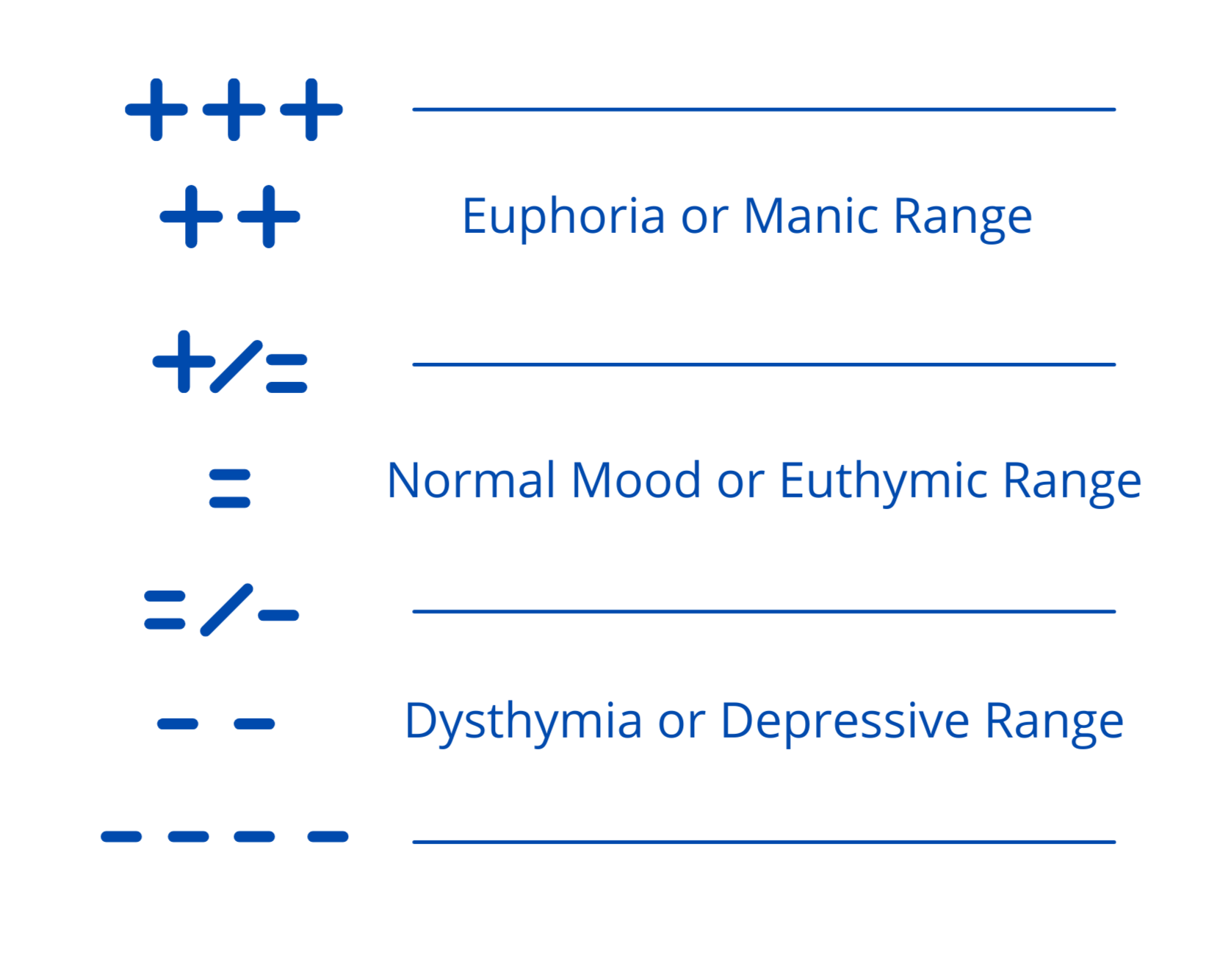Mood Disorders
What is Mood?
In order to explain what constitutes pathological mood or a mood disorder, we need to understand what mood is and what is considered normal mood or euthymia.
Mood is defined variously as an emotional state that may last anywhere from minutes and hours to days and months, a conscious state of mind or predominant emotion, or a general feeling, not a reaction to a particular situation, although everyday life challenges may help modulate each person’s mood.
Mood is how we feel emotionally and manifest ourselves at any given time, and it ranges on a continuum with two extremes, e.g., low or depressed to high or euphoric, with a normal (euthymic) or medium range in between. The extremes can be characterized as sad, depressed, overwhelmed, agitated, angry, nervous, anxious, etc. See the illustration of the continuum depicting different mood stages.
Euthymia or Normal Mood
Normal mood is a relatively stable and balanced sense of wellness and satisfaction or acceptance. While mild fluctuations in a sense of wellness are normal, euthymia refers to the absence of extreme, distressing, or unrealistically euphoric emotional change. From day to day and during our waking hours, depending on the events and challenges we are exposed to every minute of our existence, we experience changes in the way we feel. The nature and seriousness of these stimuli, ranging from pleasant and rewarding, to neutral, or even unpleasant and distressing, may determine whether they elicit a lesser or greater emotional response from us, how we handle this emotional response, and how our lives are impacted. The changes in the way we feel constitute our mood. So long as our reaction to those events and challenges is well managed and we maintain emotional balance or if we do not, the disruption is temporary and proportional to the challenge, we consider that normalcy or euthymia. Any departure from these mild changes in emotions constitutes a mood disorder.
Mood Disorders
Mood disorders are characterized by the presence of sad, empty, irritable or even euphoric mood, when these changes in mood represent a noticeable shift from the individual’s typical normal daily ups and downs. Another important feature of mood disorders is the impairment of the capacity to function for the patient, or the patient experiencing sufficient distress to warrant intervention. Unipolar Depressive Disorder and Bipolar (Manic-Depressive) Disorders are included in this category.
Request More Info

